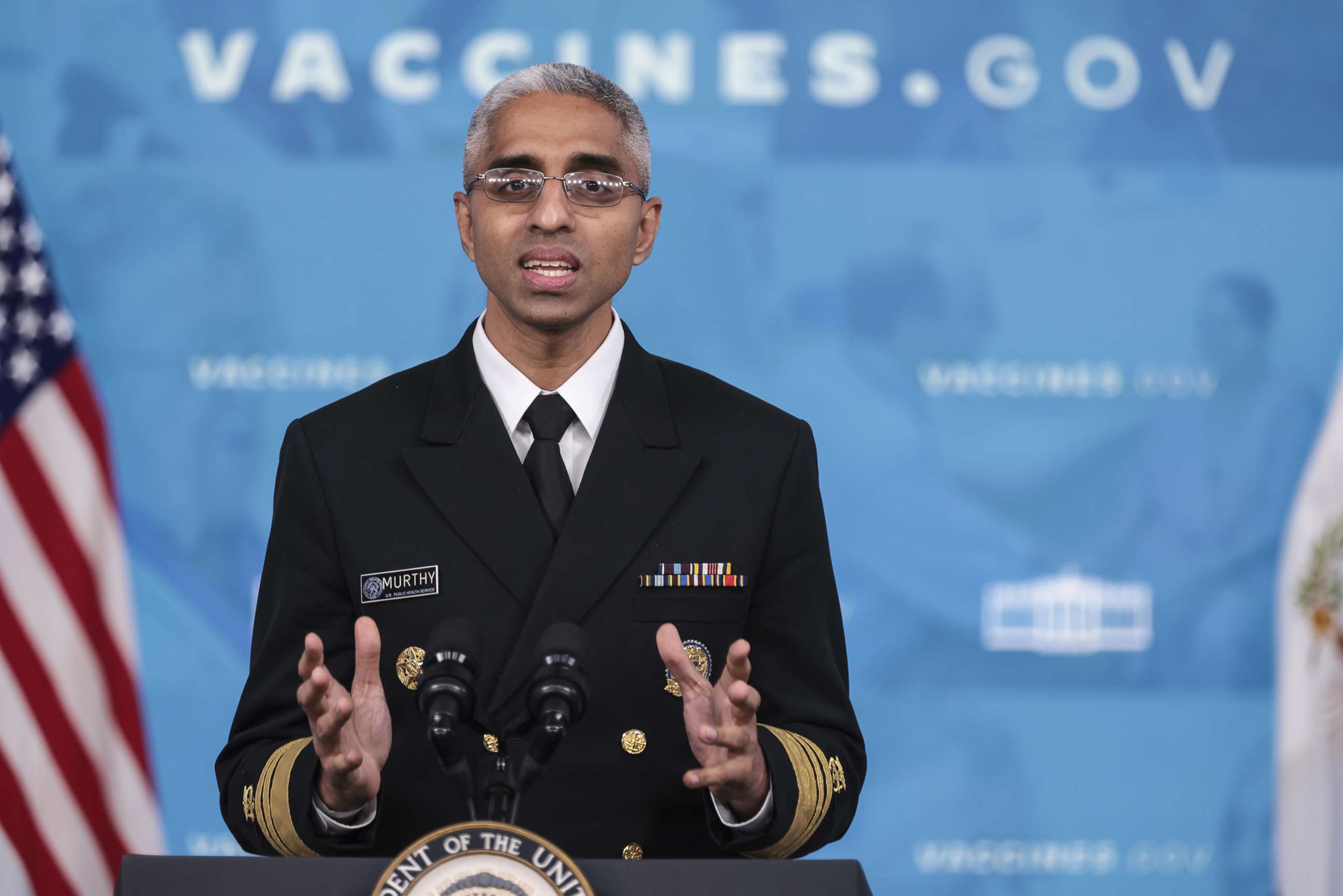SCOTUS blocking of vaccine mandate 'a setback for public health': Vivek Murthy
The requirements make "workplaces safer for workers as well as for customers."
The Supreme Court's decision to block the Biden administration's vaccine-or-test requirement for large private businesses is a "setback for public health," United States Surgeon General Vivek Murthy told "This Week" co-anchor Martha Raddatz on Sunday.
"The news about the workplace requirement being blocked was very disappointing, Martha. It was a setback for public health. Because what these requirements ultimately are helpful for is not just protecting the community at large but making our workplaces safer for workers as well as for customers," Murthy said.
Raddatz reminded Murthy that before the omicron surge, he had said on "This Week" that the mandate "was necessary and appropriate."
"So, what is plan B?" Raddatz pressed.
Murthy did not outline an explicit alternate plan but noted, "there is nothing that stops workplaces from voluntarily putting reasonable requirements in place."
"Many have done so already," he said. "A third of the Fortune 100 companies have put these in place and many more outside have, so we are certainly encouraging companies to put these requirements in place voluntarily."

Some large companies, however, are changing their plans based on the decision. General Electric confirmed to ABC News last week that it would stop implementing a planned vaccine mandate after the Supreme Court ruling.
But Columbia Sportswear said in a statement that it is "disappointed in [Thursday's] Supreme Court ruling" because it would mean the company would have to deal "with a thicket of conflicting state and local regulations."
Murthy's comments come as President Joe Biden's administration continues to ramp up efforts to stop the spread of the highly transmissible omicron variant of the coronavirus.
Senior White House officials said on Friday the administration will launch a new website Wednesday for requesting free at-home rapid COVID tests.
Raddatz pressed the surgeon general on the time it has taken to ramp up the availability of testing in the United States.
"Dr. Murthy, I know what you're doing now, but the question is, why wasn't it done sooner?" she asked. "You say you always hold out hope, but you plan for the worst. It doesn't sound like that happened."
"Well, there was planning, Martha, and there was execution on increasing the supply of tests," Murthy responded, and the omicron variant of the virus created "an extraordinary increase in demand, Martha, even beyond the incredible increase in supply that we had procured and secured during 2021. And so we have to close that gap."
Noting the high number of breakthrough infections amid the omicron surge, Raddatz asked Murthy what percent positive U.S. COVID cases, which are at record levels, are among the vaccinated or boosted.
While he didn't have a percentage breakdown for the current caseload, Murthy said being vaccinated and boosted vastly increases protection from symptomatic infection.
"What we've seen from our data, from the United States and from other countries, is that if you are vaccinated and boosted, your level of protection against symptomatic infection is in the around 75 to 80% range," he said. "So that's not 100%; it still means that they're about, is about 20% of possibility there in terms of positive cases, despite being, despite being vaccinated, compared to an unvaccinated population... that still shows a very strong efficacy overall against preventing symptomatic disease."




